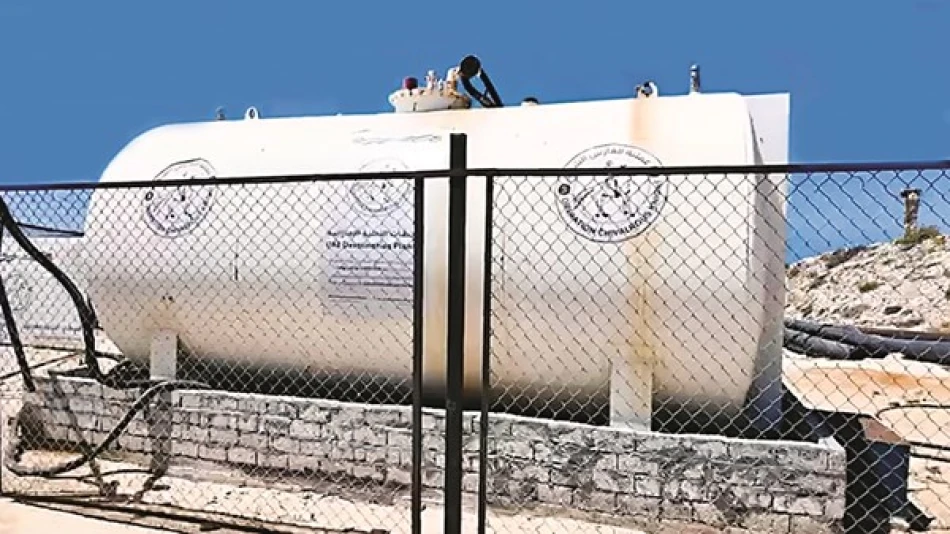
UAE Secures Water Supply for Palestinian Brothers in Gaza, Ensuring Access to This Essential Resource
A new UAE water pipeline in southern Gaza has become a lifeline for nearly one million residents facing severe water shortages. The 7-kilometer pipeline delivers 15 liters of desalinated water per person daily from Egyptian facilities to Al-Mawasi, one of Gaza's most crowded displaced persons areas.
The water crisis in Gaza has reached critical levels after months of infrastructure damage and power outages. Local water treatment plants stopped working, and distribution networks suffered extensive damage. Families have been struggling to find clean drinking water while dealing with rising temperatures and overcrowded conditions.
The new pipeline connects UAE desalination plants on the Egyptian side of Rafah to southern Gaza's displaced population centers. This marks a significant expansion of water infrastructure in the region, where humanitarian needs have grown dramatically over recent months.
The project is part of Operation "Gallant Knight 3," which also supports 55 community kitchens across Gaza. These kitchens have become essential food sources for thousands of families facing dire conditions. The operation represents a broader UAE humanitarian strategy that includes building desalination plants, providing water tankers, drilling wells, and maintaining water networks.
**Community involvement and long-term impact**
The UAE's approach goes beyond immediate relief. The Said Ahmed Lootah Charitable Foundation organized volunteer initiatives involving Dubai Medical University students to pack food parcels for Gaza residents. These supplies travel by sea through the UAE's humanitarian shipping corridor.
The student volunteers reflect a broader effort to engage young Emiratis in humanitarian work. The foundation sees this as building community responsibility and solidarity values among the next generation.
Gaza residents have expressed gratitude for the sustained support, which addresses both immediate survival needs and longer-term infrastructure challenges. The water pipeline project aims to provide consistent access to clean water while the broader humanitarian operation tackles food security.
The initiative builds on previous UAE water projects in Gaza, creating a network of support systems rather than one-time aid deliveries. This approach recognizes that Gaza's water crisis requires sustained technical solutions, not just emergency supplies.
For the nearly one million people depending on this new water source, the pipeline represents more than infrastructure—it's restored hope for basic necessities that most people take for granted. The daily 15-liter allocation per person meets minimum drinking and hygiene needs while larger water system repairs remain impossible under current conditions.
Most Viewed News

 Layla Al Mansoori
Layla Al Mansoori






